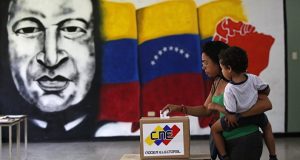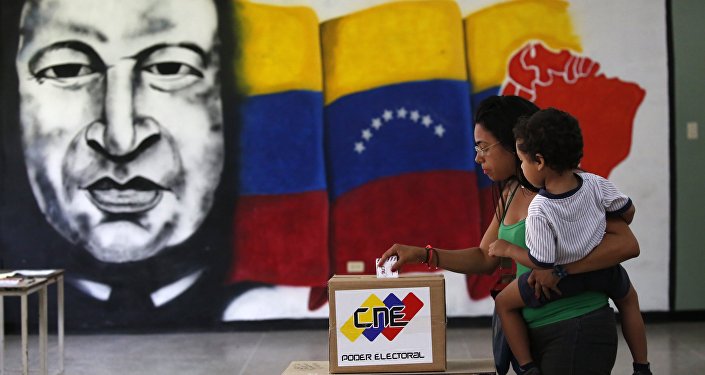The United States is planning to ramp up sanctions against Venezuela’s democratically-elected President Nicolas Maduro in a bid to force him out. Washington is preparing to freeze assets belonging to around 20 people linked to President Maduro’s government.
US President Donald Trump could act as early as Tuesday, August 8.
Canada’s foreign minister Chrystia Freeland will join counterparts from 11 Latin American countries in the Peruvian capital Lima on Tuesday, for an emergency meetingto discuss the situation in Venezuela in the wake of the recent vote on the country’s Constituent Assembly.
According to Peruvian Interior Minister Carlos Basombrio, the representatives of 18 states, including Argentina, Brazil, Canada, Chile, Colombia, Costa Rica, Guatemala, Honduras, Mexico, Panama and Paraguay are expected to take part in the meeting, convened by the Peruvian government.
The US may push ahead with further sanctions on the Maduro government, regardless of the outcome of Tuesday’s meeting.
Washington claims fraud was perpetuated in the elections for Venezuela’s constituent assembly on July 30.
The election for the 545-seat legislature was held amid widespread condemnation from regional powers.
President Maduro said the body, which has the right to rewrite the constitution, would help bring peace to the nation.
When the country’s Attorney General Luisa Ortega Diaz announced plans to launch an investigation into the alleged electoral fraud, she was removed from office in a vote by the new assembly.
”We very much believe that sanctions do work, and we will continue to monitor the situation and consider additional sanctions,” Treasury Secretary Steven Mnuchin told reporters at a White House briefing at the time.
It has previously sanctioned 13 people associated with the regime, including Simon Zerpa, vice president of finance at Petroleos de Venezuela (PDVSA), the state oil company.
Now the Trump administration is planning to impose sanctions on many more individuals in an echo of his sanctions on Russia since 2014.
The first deputy chairman of the Russian Federation Council’s Foreign Affairs Committee, Vladimir Dzhabarov, recently told Sputnik that the US had always opposed Chavez and Maduro because they did not accept US interference in their economy.
“It is a blatant attempt to topple an unpleasant leader who does not admit the United States to Venezuelan oil resources and does not want to cooperate under the imposed conditions,” Mr. Dzhabarov told reporters.
Peru’s President Pedro Pablo Kuczynski has led calls for a regional response to the crisis in Venezuela.
President Maduro succeeded Hugo Chavez, the country’s charismatic left-wing leader after his death in 2013.
Chavez and Maduro are praised by their supporters for using Venezuela’s oil wealth to reduce inequality and lift many Venezuelans out of poverty. But the opposition has accused them of mismanaging the economy and eroding democracy.
Despite the country’s huge oil wealth there are massive shortages of food and other groceries.
There have been riots this year, which have led to a number of deaths, and earlier President Maduro claimed a group of mercenaries attacked a military base in the city of Valencia but were fought off by forces loyal to the government.




